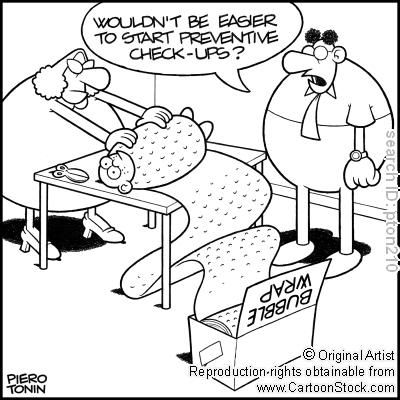Dear Attraction Theorists
I wish I had this shirt...
via Psychology Today:
I've always been told beauty is in the eye of the beholder, or one man's trash is another man's treasure. That's just how the world works. Subjectivity is the reason rich people don't think they're rich. It's the reason for the difference between Islamic extremists and pacifists. It's the reason you either hate or love people like the Kardashians, Sarah Palin and Rihanna. Subjectivity is the basis of opinions, many of which simultaneously take their root in facts. Yet, one issue that never seems to have any factual basis, no matter who is examining it. That, my friends is attraction.
Attraction theorists, first of all let me ask you this: in the course of civilization, has there ever been one singular, solitary definition of what makes a person attractive? Yes, you can ask a sample of 1,000 or 10,000 or 100,000 people, but that will never account for the outliers. That will never be able to account for all the people who love black women (raises hand) or those that only like Asian midgets or those that can't stand any race.
How dare you guys compartmentalize black women like that? Since when has the attractiveness of black women been so low? You guys could not have been asking enough people of color, which I say with a grain of salt because people might not always identify with their color. Either way, there will always be people on either side of the fence - who either can't stand or can't resist black women physically. There are also going to be those who like one race a bit more than the next. It's not a question of who is more attractive, just what people like. Subjectivity reigns supreme in the question of attraction, and breaking it down so specifically is essentially pointless.
Second of all, why are you even studying something as trivial as this? This is another case of science trying to over-intellectualize things for the sake of 'knowing' them. You can have your graphs and surveys and numbers and samples. Attraction is probably the most rudimentary instinct that a human can have. Quantifying it does little for humanity other than give schmucks like you a job. There are so many more important breakthroughs that could have been accomplished in the time it took you and your cronies to figure out what gives everyone a woody. Additionally, what does this prove other than there is somewhat of a bias against black women? There's no groundbreaking legislation, medical breakthrough or amazing new revolution that came from this research. It's what we call 'shock science'; research for the sake of research, and you guys are at the top of the totem.
I understand it's only a research study. It probably won't hold any relevance after about a week. Yet research like this only serves to undermine black women even more. You guys hold their stereotypically strong demeanor and voluptuous figures against them as if those qualities are something to be ashamed of. Somewhere there's a black woman eyeing her curves with disdain or vowing to become more submissive just because of 'findings' like this. Why don't you guys put your (sadly worthless) psychology degrees to good use and figure out a basis for racism, or find the root of homosexuality, or decide what exactly constitutes insanity. That'd help society out a lot more than essentially deriding supposed characteristics of black women in the guise of 'science'.
via Psychology Today:
Recall that women on average are more physically attractive than men. So women of all races are on average more physically attractive than the "average" Add Health respondent, except for black women. As the following graph shows, black women are statistically no different from the "average" Add Health respondent, and far less attractive than white, Asian, and Native American women.
... What accounts for the markedly lower average level of physical attractiveness among black women? Black women are on average much heavier than nonblack women. The mean body-mass index (BMI) at Wave III is 28.5 among black women and 26.1 among nonblack women. (Black and nonblack men do not differ in BMI: 27.0 vs. 26.9.) However, this is not the reason black women are less physically attractive than nonblack women. Black women have lower average level of physical attractiveness net of BMI. Nor can the race difference in intelligence (and the positive association between intelligence and physical attractiveness) account for the race difference in physical attractiveness among women. Black women are still less physically attractive than nonblack women net of BMI and intelligence. Net of intelligence, black men are significantly more physically attractive than nonblack men.
... The only thing I can think of that might potentially explain the lower average level of physical attractiveness among black women is testosterone. Africans on average have higher levels of testosterone than other races, and testosterone, being an androgen (male hormone), affects the physical attractiveness of men and women differently. Men with higher levels of testosterone have more masculine features and are therefore more physically attractive. In contrast, women with higher levels of testosterone also have more masculine features and are therefore less physically attractive. The race differences in the level of testosterone can therefore potentially explain why black women are less physically attractive than women of other races, while (net of intelligence) black men are more physically attractive than men of other races.
I've always been told beauty is in the eye of the beholder, or one man's trash is another man's treasure. That's just how the world works. Subjectivity is the reason rich people don't think they're rich. It's the reason for the difference between Islamic extremists and pacifists. It's the reason you either hate or love people like the Kardashians, Sarah Palin and Rihanna. Subjectivity is the basis of opinions, many of which simultaneously take their root in facts. Yet, one issue that never seems to have any factual basis, no matter who is examining it. That, my friends is attraction.
Attraction theorists, first of all let me ask you this: in the course of civilization, has there ever been one singular, solitary definition of what makes a person attractive? Yes, you can ask a sample of 1,000 or 10,000 or 100,000 people, but that will never account for the outliers. That will never be able to account for all the people who love black women (raises hand) or those that only like Asian midgets or those that can't stand any race.
How dare you guys compartmentalize black women like that? Since when has the attractiveness of black women been so low? You guys could not have been asking enough people of color, which I say with a grain of salt because people might not always identify with their color. Either way, there will always be people on either side of the fence - who either can't stand or can't resist black women physically. There are also going to be those who like one race a bit more than the next. It's not a question of who is more attractive, just what people like. Subjectivity reigns supreme in the question of attraction, and breaking it down so specifically is essentially pointless.
Second of all, why are you even studying something as trivial as this? This is another case of science trying to over-intellectualize things for the sake of 'knowing' them. You can have your graphs and surveys and numbers and samples. Attraction is probably the most rudimentary instinct that a human can have. Quantifying it does little for humanity other than give schmucks like you a job. There are so many more important breakthroughs that could have been accomplished in the time it took you and your cronies to figure out what gives everyone a woody. Additionally, what does this prove other than there is somewhat of a bias against black women? There's no groundbreaking legislation, medical breakthrough or amazing new revolution that came from this research. It's what we call 'shock science'; research for the sake of research, and you guys are at the top of the totem.
I understand it's only a research study. It probably won't hold any relevance after about a week. Yet research like this only serves to undermine black women even more. You guys hold their stereotypically strong demeanor and voluptuous figures against them as if those qualities are something to be ashamed of. Somewhere there's a black woman eyeing her curves with disdain or vowing to become more submissive just because of 'findings' like this. Why don't you guys put your (sadly worthless) psychology degrees to good use and figure out a basis for racism, or find the root of homosexuality, or decide what exactly constitutes insanity. That'd help society out a lot more than essentially deriding supposed characteristics of black women in the guise of 'science'.

